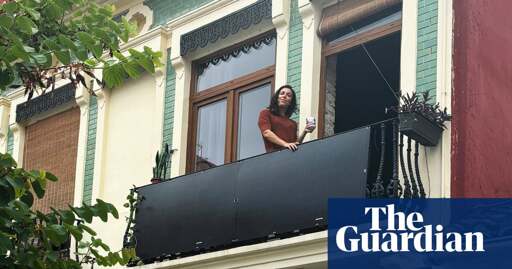Manufacturers say that installing a couple of 300-watt panels will give a saving of up to 30% on a typical household’s electricity bill. With an outlay of €400-800 and with no installation cost, the panels could pay for themselves within six years.
In Spain, where two thirds of the population live in apartments and installing panels on the roof requires the consent of a majority of the building’s residents, this DIY technology has obvious advantages.
With solar balconies, no such consent is required unless the facade is listed as of historic interest or there is a specific prohibition from the residents’ association or the local authority. Furthermore, as long as the installation does not exceed 800 watts it doesn’t require certification, which can cost from €100 to €400, depending on the area.
As with all solar power systems, balcony power only works in daylight and a battery storage system can add at least €1,000 to the installation cost.
Vernetta says the vertical surface area of cities is far greater than that of the roofs and that, in Spain, balcony panels benefit more than roof panels from the low winter sun.
Cities such as Helsinki are already experimenting with buildings with solar panel cladding.



Oh look, a link to a solar company. Shocked.
You can simple google it. It’s considered common knowledge at this point.
Find me something showing 25 year old solar panels that still deliver 80% or higher output.
Most haven’t been around for 25 years yet, but here’s a study on german panels at 16-20 years showing they’re just fine.
https://www.pv-magazine.com/2023/05/16/researchers-assess-degradation-in-pv-systems-older-than-15-years/
Erm as he is talking about what the panel providers are willing to warrantee. Where else would you expect to see it.
Give me a week and I can go get the warrantee paperwork for my panels. But I’m net heading out to them till after Xmas. But it’s 20 years at something like 85% of original performance.
If you are expecting to see test data. Well, honestly, other than manufacturers. The older technologies really were not as reliable. The same manufacturing techniques that have reduced the price of panels over the last few years. Are the reason UV damage etc will take longer to effect them. Hence, the long warrantees. 70-90s panels used to suffer from UV fogging over the diodes, so did not expect to last as long. But even they tended to last about 10 years.
As I pointed out else where. It is not the panels that are likely to fail in 6 years. (unless damaged) But the electronics adjusting to battery or AC voltages for use. They tend to come with much shorter warrantees. But if fitted well, are also much easier to replace.